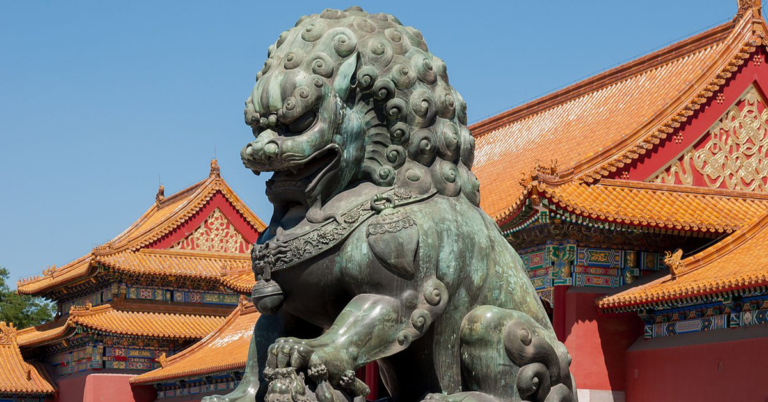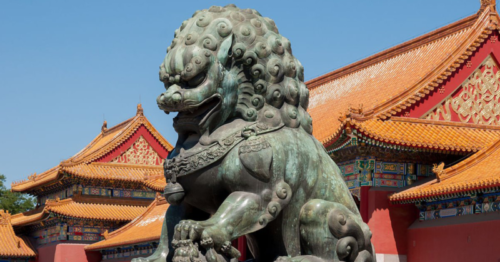Just a few years ago, Hollywood was all too eager to perpetuate the narrative that China was the future of the major motion picture industry. With several highly publicized Hollywood company acquisitions and investments by large Chinese firms, and the production and release of The Great Wall starring Matt Damon, the writing was on the proverbial wall that studios were headed to harness the growing Chinese box office and if companies didn't plan ahead, they were going to get left behind.
A mere two years later, The Great Wall made a healthy $330 MM at the global box office, however it was considered a critical and financial flop in the United States, drawing into question the future of China as a much needed shot in the arm for Hollywood.
The prognosticators were wrong two years ago about The Great Wall and they are wrong now about China being less relevant. China is clearly an essential component to the global box office, but finding success there is clearly a bit more complicated than a formulaic monster fantasy film centered around their most famous national historical monument and starring Matt Damon who is, in fact, not Chinese.
The
ScreenCraft China-Hollywood Screenwriting Fellowship is accepting entries until January 31st. Many of our readers have asked, likely due to the recent negative coverage of the Chinese box office, if entering a contest geared towards the Chinese marketplace is still worthwhile in this current landscape.
The answer is an obvious yes and here are four reasons why.
1. Facts are Facts
In 2017, China had twenty-five films gross over $100 Million at their domestic box office. To give perspective, the United States was the only other country that had more than one! Of the twenty highest grossing films in the US last year, nineteen of them earned over half of their global box office revenue from the international box office-- of which China overwhelmingly makes up the largest percent.
This contextualizes how films like The Expendables 3, Escape Plan or Gods of Egypt, which struggled or outright bombed in the US, were still massive financial successes due to a strong Chinese box office.
Undoubtedly, a film can be a financial success without doing well at home if it does well in China.
2. Proven Success
One of the biggest challenges for writers and screenwriting contests is taking that final step from having a good script to closing with representation. Winning a contest undoubtedly proves the strength of your material, but having strong material is only one prerequisite for managers and producers.
Any contest that has generated a signing or script option is worth your consideration. In only its first year of existence, writer-director Patrick Biesermans' winning script The Beautiful Country is late in the stages of development and slated for production with Orb Media Group, the competition's sponsor.
If you are entering competitions with hopes of getting your work optioned, this competition has proved the ability to do so.
2. "But all those restrictions..."
Undoubtedly the biggest objection we hear to writing scripts for the Chinese market is the restrictions placed on content by the Chinese government's censorship laws. While it is true that some popular US films have not been released in China, every studio, production company or television network who reads your script is going to have their own hardline standards of what they will or won't produce, affecting the way writers write as well. In the same sense you shouldn't send your draft of Game of Thrones to the Hallmark Channel, don't submit a script the audience isn't looking for.
Inevitably, all writers need to know the audience they are writing for and what they will or won't respond to. Screenwriting in and of itself is learning to write within the parameters of an audience's genre or tone expectations. Working within boundaries is part of the skillset that comes with being a writer.
With that said, you CAN write horror, supernatural and historical screenplays for China - the trick is making sure it's optioned by producers with strong relationships within the Chinese government and experience navigating the Chinese censorship laws. This is one of the main reasons we've partnered with Orb Media Group for this specific competition.
4. Get in as many lines as possible
A problem many writers face is the persistent belief that there is only one pathway to "success." Many lose time and energy forcing themselves to write scripts they think other people want even if it doesn't serve the writer's own voice, style or taste.
It's easy to be bogged down by the belief that they must appease only certain managers, agents, producers and audiences. The best move for any writer's career is finding the right fit. You owe it to yourself then to see if your material resonates with a different marketplace or audience.
For further exploration of this topic, see this blog post: China is the Future: Screenwriters Should Diversify





























